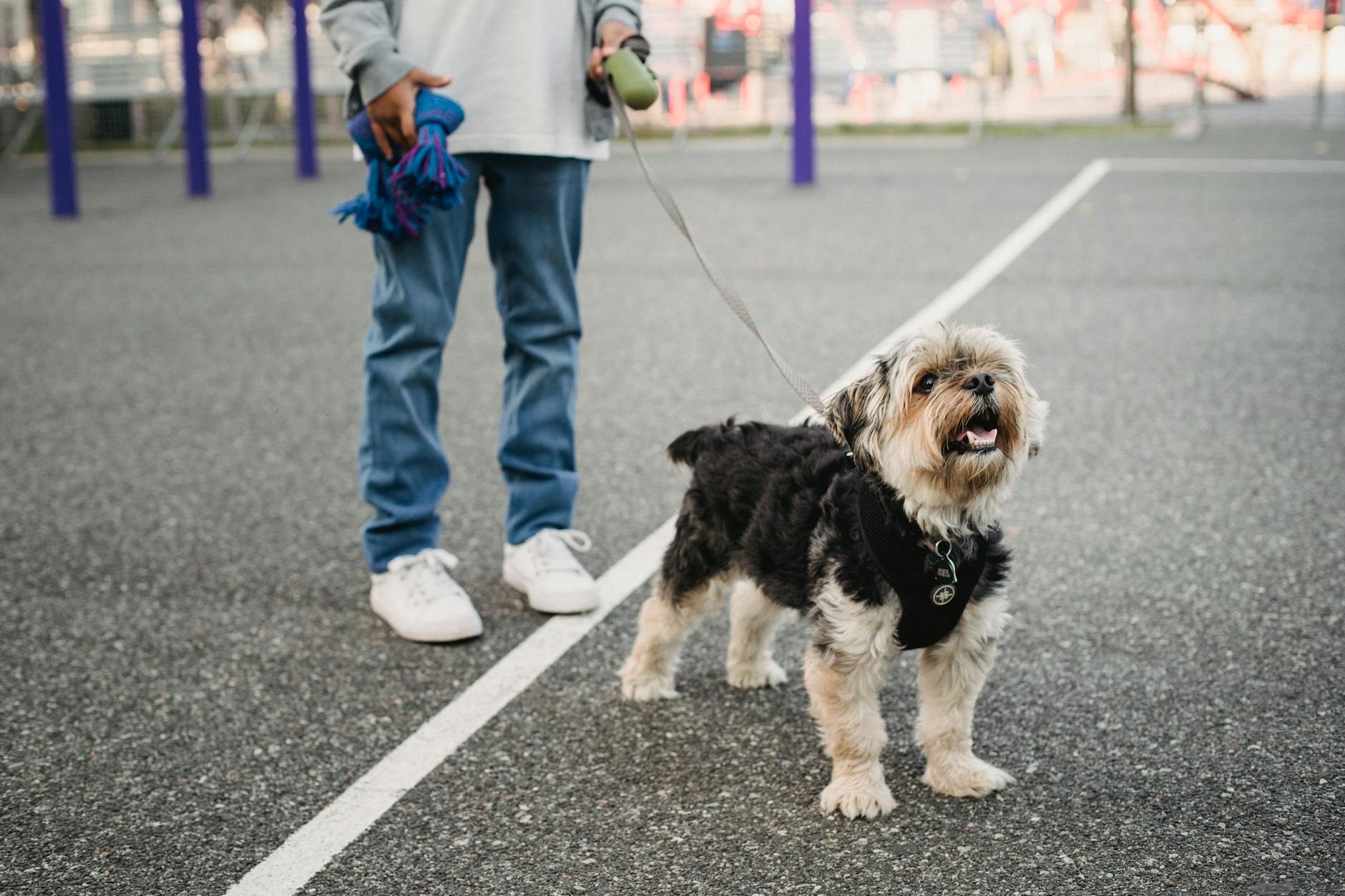How to Find Environmentally Responsible Dog Accessories in Australia

Why Eco-Friendly Dog Accessories Matter
Finding eco-friendly dog travel accessories not only supports the planet but also enhances your pet's well-being. The integration of sustainable practices into our daily lives is crucial, especially when we stroll through places like the Royal Botanic Gardens Victoria. By choosing accessories made from natural materials, such as recycled fibers or biodegradable components, we significantly reduce our carbon footprint. Our dogs deserve the comfort of environmentally conscious products, and brands like snuggle puppy offer innovative designs that prioritize sustainability without compromising on quality or comfort.
Let's consider the health benefits for our dogs. Many conventional dog products include synthetic materials that might cause skin irritations or allergies. Eco-friendly options often use organic or hypoallergenic materials, offering your dog relief from potential irritants. These choices align with a green lifestyle and benefit your furry friend's health and happiness.
Supporting sustainable brands helps create a market shift towards more eco-conscious production methods. As consumers, our choices make a difference: purchasing from companies committed to reducing waste and emissions promotes a healthier environment. One tech-savvy solution for urban pet living is an invisible dog fence, which maintains safety while minimizing physical barriers that clutter green spaces.
The journey to eco-friendly living encompasses both practical benefits and ethical considerations. By choosing the right dog products, you protect not only your pet's well-being but also contribute to a more sustainable world.
Types of Green Dog Accessories
Organic Toys and Chews
When it comes to choosing eco-friendly dog accessories, organic toys and chews are an excellent starting point. These items, often made from natural materials like hemp or untreated cotton, are not only better for the planet but also safer for your dog. Unlike dog collars that shock, which rely on electronic components, organic options minimise environmental impact and reduce the chemical exposure for our furry friends. Taking a stroll through Fitzroy's eco-friendly shops, you'll find a variety of sustainable options that support both your dog's well-being and the environment.
Recycled Material Gear
Recycling goes a long way in preserving our planet, and dog accessories crafted from recycled materials are a testament to this truth. From leashes to harnesses, many products in this category take discarded plastics or fabrics and give them a new life. This process significantly cuts down waste and conserves resources, ensuring that future generations can still enjoy places like the Royal Botanic Gardens Victoria. For those considering training collars dogs, ensure they are made with sustainable materials, reinforcing your commitment to a greener lifestyle.
Biodegradable Waste Bags
Using biodegradable waste bags is a simple yet impactful way to contribute to environmental conservation. Unlike traditional plastic bags, these decompose much faster, leaving behind no harmful residues. Next time you're grabbing a coffee at one of Brunswick’s sustainable cafes, consider picking up a pack of these eco-friendly bags. The convenience of biodegradable options aligns perfectly with the needs of urban living, where environmental stewardship can seamlessly blend with daily routines.
Evaluating Product Sustainability
Key Eco-Friendly Materials
In the realm of green living, selecting products for our furry friends involves more than just choosing what's popular. I'm constantly drawn to innovations that blend sustainability with functionality, especially when deciding on a hidden dog fence. Key eco-friendly materials like hemp, organic cotton, and recycled plastics are at the forefront. These materials are not only sustainable but versatile, often used in items ranging from dog leads to toys. This choice directly supports reducing environmental impact while ensuring our pet gear is safe and durable.
Recognizing Sustainable Labels
Deciphering sustainable labels is crucial for anyone serious about eco-friendly practices. When browsing Fitzroy's charming eco-friendly shops for pet accessories, understanding certifications like Fair Trade, Global Organic Textile Standard (GOTS), or even Energy Star can make a significant difference. These labels assure us that a company's practices align with environmentally conscious principles. As a tech enthusiast, I find joy in differentiating authentic labels from misleading ones, giving me confidence in the environmental claims of each product I bring home.
Assessing Brand Practices
Finally, delving into a brand's sustainability practices uncovers a wealth of information about its commitment to eco-friendliness. Investigating whether a brand uses renewable energy in production or supports local communities can clarify the ethical nature of their products. During visits to the sustainable cafes around Brunswick, it’s inspiring to see this in practice and encourages me to select accessories that reflect these values, like anti bark collars, which marry innovation with responsibility.
Where to Shop Responsibly in Australia
Local Pet Stores with Green Focus
Living in Australia offers fantastic opportunities for those of us committed to environmental sustainability, especially pet owners. In various parts of the country, you can find local pet stores that prioritise earth-conscious practices. These stores not only offer eco-friendly products but also focus on sustainable sourcing. When I visit a pet store with a green focus, I'm always keen to inquire about products like bark collars and the materials they're made from. This helps ensure that I'm making responsible choices for my dog, Max.
Online Marketplaces for Eco Products
Online shopping can open up a world of sustainable pet products. Websites dedicated to eco-friendly living often have a curated selection of pet accessories, making it easier to find items like organic toys or gps dog tracking devices. These platforms are a boon for those of us who want to ensure our purchases reflect our environmental values. Plus, browsing online allows me to easily compare product specifications and reviews, ensuring Max gets the best while keeping my ecological footprint in mind.
Community Markets and Fairs
There's nothing quite like visiting a community market or fair to discover unique and sustainable pet products. In my experience, these markets are great venues to meet small business owners who are passionate about eco-friendly practices. Plus, supporting local artisans contributes to community sustainability. If you're on the lookout for eco-friendly dog accessories, exploring local markets can be both an inspiring and rewarding experience.
Overcoming Obstacles for Eco-Conscious Canine Accessories
Tackling Greenwashing
Greenwashing is a sneaky adversary in the world of sustainability, and it's something we must always be vigilant about. As I wander the delightful eco-friendly shops in Fitzroy or sip a coffee at a sustainable café in Brunswick, I often hear stories of consumers misled by brands claiming to be greener than they are. To combat this, it's vital to look beyond catchy slogans. Search for credible certifications that back up their green claims, such as Fair Trade or the Global Organic Textile Standard. Double-checking the Australian Consumer Law guidelines can also protect us from misleading ecological claims.
Navigating Cost vs. Sustainability
Balancing the budget while striving for sustainability is a puzzle many young environmentalists face. I often remind myself that investing in high-quality eco-friendly dog accessories from sustainable local brands supports ethical businesses and ensures durability. Yes, the initial cost might be higher, especially compared to mass-produced alternatives, but in the long run, the durability and health benefits for both our dogs and the planet make it worthwhile. Remember the environmentally friendly products we encounter in local markets often have more intrinsic value than meets the eye.
Ensuring Authenticity and Integrity in Product Claims
In my visits to the Royal Botanic Gardens in Victoria, I've learned the importance of verifying claims made by brands. With so many options available, one way to ensure authenticity is to research brands thoroughly. Peeking into their energy practices or water conservation efforts gives us insights into their genuine commitment to sustainability. Being proactive and demanding transparency on their environmental policies or practices will ensure we're making informed choices. Remember, each step towards reliable, eco-friendly products brings us closer to a sustainable future.


